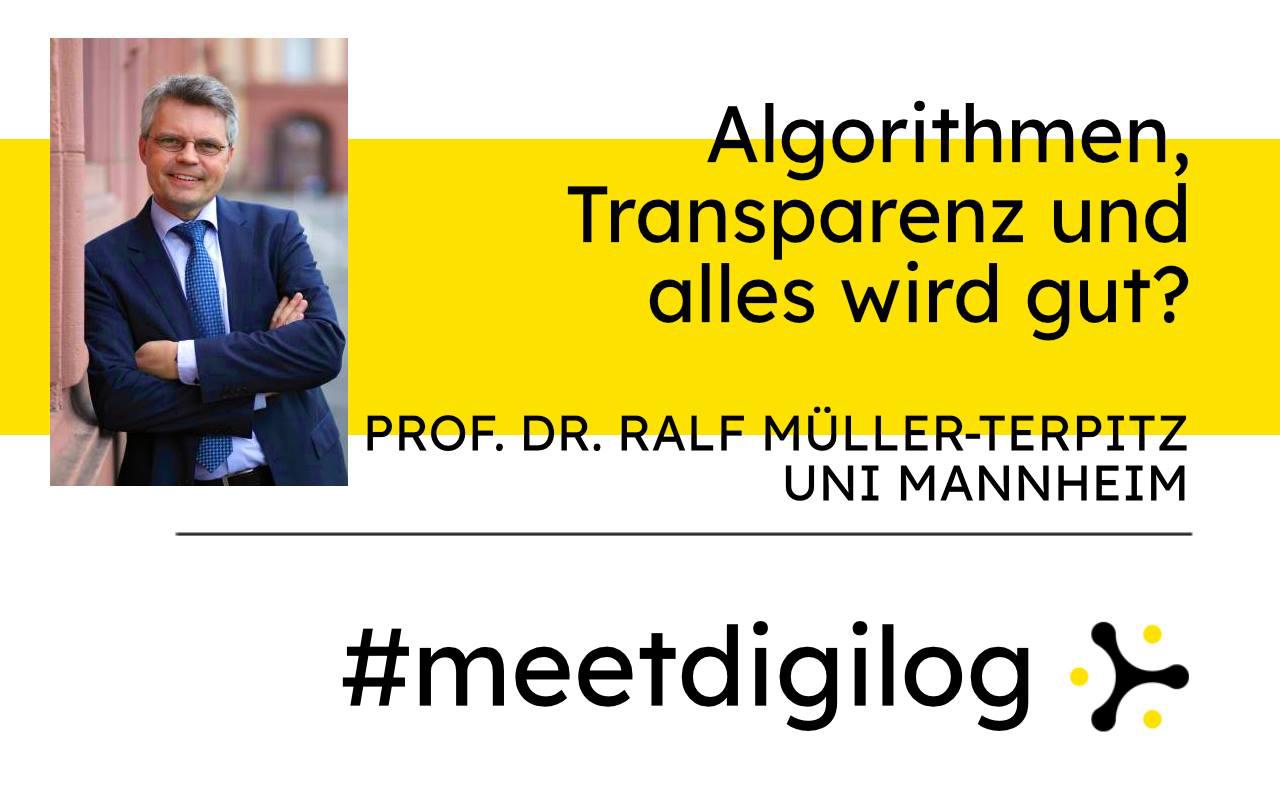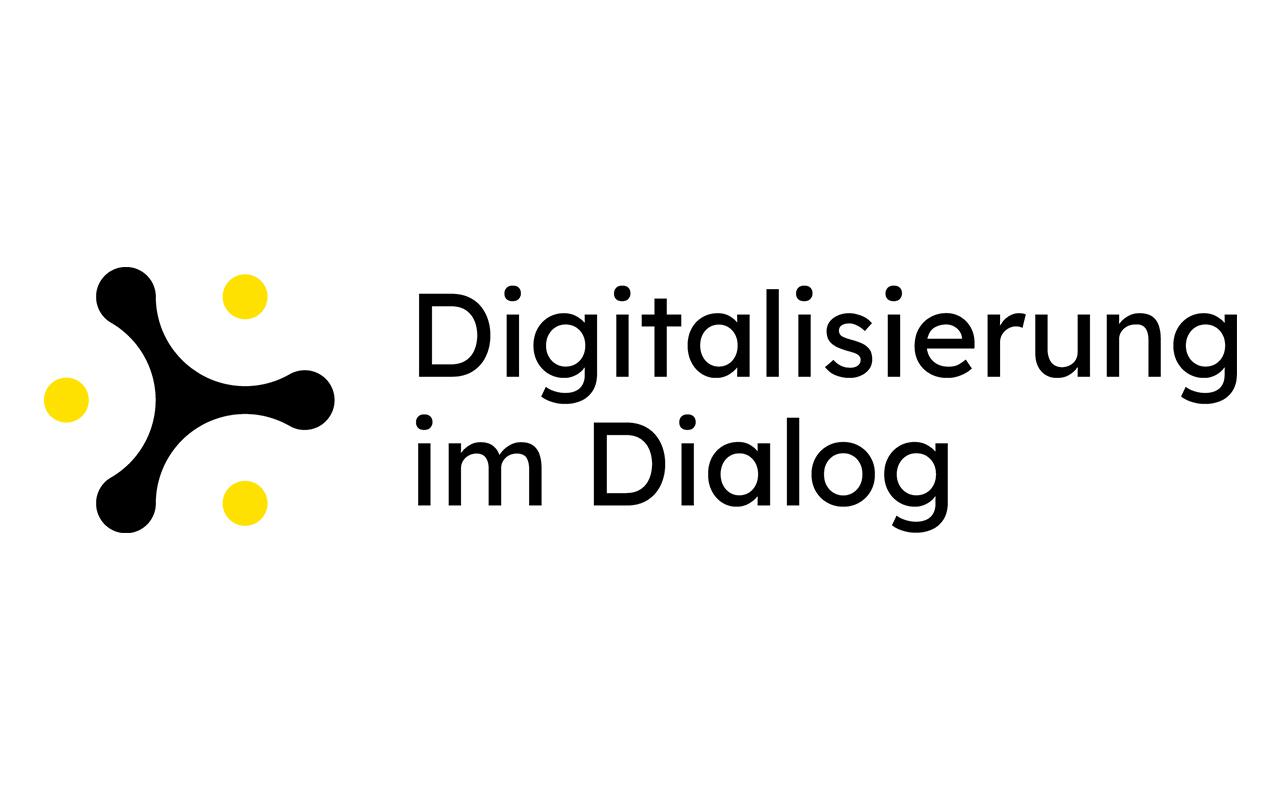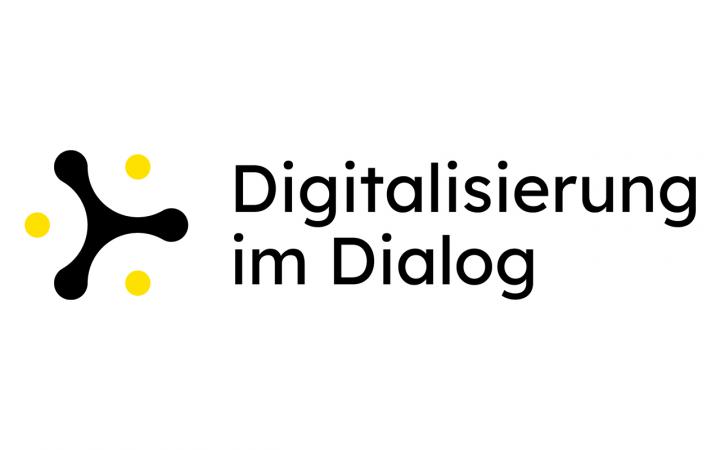
Note: Due to technical issues at #meetdigilog on February 25, 2021, this is a repeat event.
Do algorithms reinforce radical opinions? And what is actually behind the so-called filter bubbles? Join us in opening the »black box« of algorithms and explore the question of whether the disclosure of algorithms can be demanded at all!
Algorithms influence our social life in many areas. They can decide whether investors are creditworthy. They decide what information is visible when using social networks such as Facebook, Instagram and Twitter. In extreme cases, the algorithms reinforce radical opinions and promote so-called filter bubbles, which in turn can pose dangers to the democratic formation of will.
At the same time, the users of the respective systems and networks are only dimly aware of how the algorithms work. Why the algorithm »spits out« a certain result is usually not apparent. In order to open up this »black box algorithm«, there are increasing calls for »transparency« of algorithms and algorithmic decision-making, most recently even regulated by law for the first time in the State Media Treaty.
But is it at all possible to explain in layman's terms how an algorithm works – or is it merely symbolic legislation? Can the disclosure of algorithms be demanded at all?
Be there live, meet our scientists and share your thoughts and ideas directly in the chat. Get practical tips and exciting knowledge about digitalization!
The event is held in German.
Prof. Dr. Ralf Müller-Terpitz has held the Chair of Public Law, Law of Economic Regulation and Media at the University of Mannheim since September 2013. His research focuses on media and internet law. Since 2009, he has also been a member of the Commission on Concentration in the Media (KEK; body of the state media authorities in Germany).
Sabine Faller is a research assistant in the department of museum communication at ZKM | Karlsruhe. Her focus is on the conception and implementation of workshops, projects and educational programs in the fields of media art, digital education and online learning – currently for the research project »Digitalization in Dialog – digilog@bw«.
- Organization / Institution
- ZKM | Center for Art and Media Karlsruhe
Accompanying program
-
- Thu, October 13, 20227 pm
- Shaping Digital Futures
-
Symposium
Medientheater
-
- Thu, September 29, 20226 pm
- Coping with memes
-
Workshop
Online
-
- Thu, August 18, 20226 pm
- #meetdigilog
-
Online
-
- Mon, July 25, 20226 pm
- #meetdigilog
-
Talk
Online
-
- Thu, June 30, 20226 pm
- #meetdigilog
-
Talk
Online
-
- Sun, June 19, 202211 am
- Busted! Tricks surveillance algorithms
-
Workshop
Online
-
- Thu, May 19, 20226 pm
- #meetdigilog
-
Talk
Online
-
- Wed, May 04, 20227 pm
- Wikipedia: Who writes his_tory?
-
Workshop
Online
-
- Wed, April 27, 20226 pm
- #meetdigilog
-
Talk
Online
-
- Thu, March 31, 20226 pm
- Talking about cancer online?
-
Talk
Online
-
- Thu, December 02, 20215.30 pm
- »Fake it till you make it« – Fake reviews on Jameda, Yelp and Co.
-
Talk
Online
-
- Mon, November 22, 2021
- LehrerInnenfortbildung
-
Workshop
Online
-
- Thu, November 18, 20215 pm
- »Alexa, explain the world to me!«
-
Talk
Online
-
- Mon, October 18, 2021
- LehrerInnenfortbildung
-
Workshop
Online
-
- Thu, October 14, 20215 pm
- Digiloglounge Digital
-
Online
-
- Thu, October 07, 20215.30 pm
- #meetdigilog
-
Talk
Online
-
- Thu, September 30, 20215 pm
- Digiloglounge Digital
-
Online
-
- Sat, September 25, 20214.30 pm
- TOTAL GAIA – Digital
-
Workshop
Online
-
- Thu, September 23, 20215.30 pm
- #meetdigilog
-
Talk
Online
-
- Wed, September 08, 202110 am
- Starke Bilder im Netz: Message mit Memes! – digilog@bw
-
Workshop
Online
-
- Thu, August 26, 20215.30 pm
- #meetdigilog
-
Talk
Online
-
- Sat, June 26, 20214 pm
- Trust me! – digilog@bw
-
Workshop
Online
-
- Thu, June 24, 20215 pm
- Digiloglounge Digital
-
Talk
Online
-
- Fri, June 18, 20214 pm
- Wellbeing at Home – digilog@bw
-
Workshop
Online
-
- Mon, June 14, 20216 pm
- Artivism on the net
-
Workshop
Online
-
- Sat, May 29, 20214 pm
- Feminism and Memes – digilog@bw
-
Workshop
Online
-
- Thu, May 27, 20215.30 pm
- #meetdigilog
-
Talk
Online
-
- Sat, May 22, 20213 pm
- Wellbeing at Home – digilog@bw
-
Workshop
Online
-
- Thu, May 20, 20215 pm
- Digiloglounge Digital
-
Online
-
- Mon, May 10, 20216 pm
- Artivism on the net
-
Workshop
Online
-
- Sat, April 17, 20214 pm
- Faking News Factory – digilog@bw
-
Workshop
Online
-
- Thu, April 15, 20215.30 pm
- #meetdigilog
-
Online
-
- Mon, April 12, 20216 pm
- Artivism on the net
-
Workshop
Online
-
- Thu, April 08, 20215 pm
- Digiloglounge Digital
-
Online
-
- Thu, March 25, 20215.30 pm
- #meetdigilog
-
Online
-
- Sat, March 20, 20214 pm
- Digital Feeling
-
Workshop
Online
-
- Thu, March 18, 20215 pm
- Digiloglounge Digital
-
Online
-
- Mon, March 08, 20216 pm
- Artivism on the net
-
Workshop
Online
-
- Thu, February 18, 20215 pm
- Digiloglounge Digital
-
Online
-
- Thu, January 28, 20215 pm
- Digiloglounge Digital
-
Online
-
- Thu, December 17, 20205 pm
- Digiloglounge Digital
-
Online
-
- Thu, November 19, 20205 pm
- Digiloglounge Digital
-
Online
-
- Thu, October 15, 20205 pm
- Digiloglounge Digital
-
Online
-
- Thu, September 17, 20205 pm
- Digilounge Digital
-
Online
-
- Wed, September 11, 20197 pm
- dialog@bw
-
Medientheater

